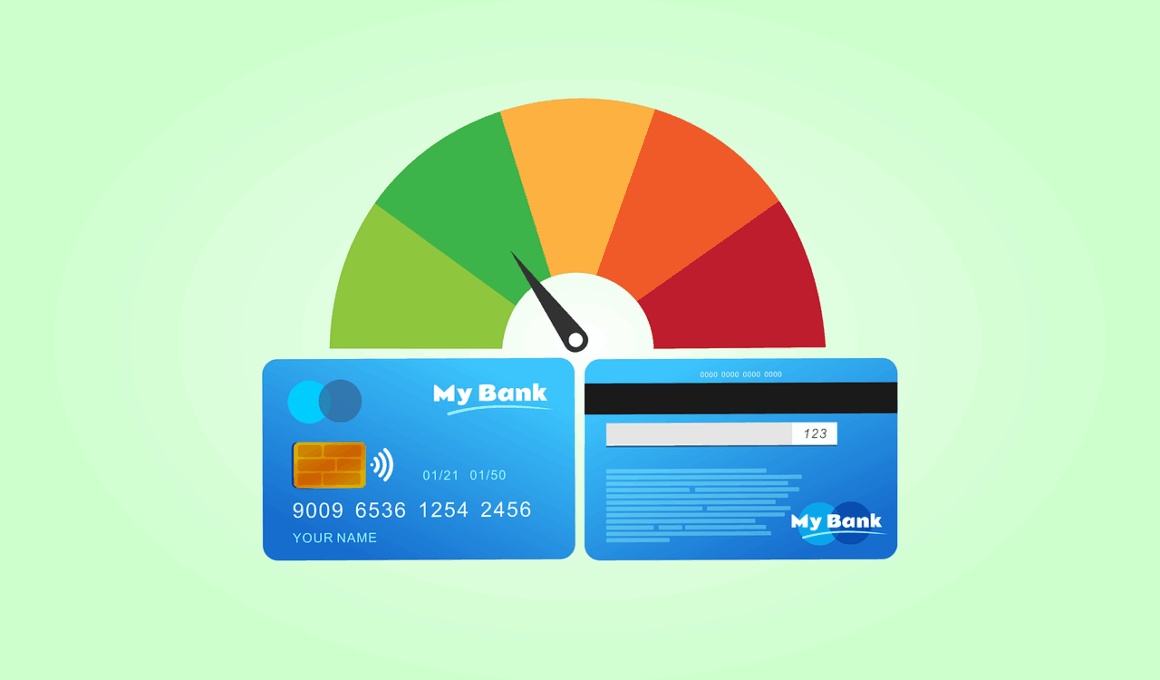How Credit Bureaus Use Your Financial Data
Credit bureaus play a crucial role in managing and analyzing financial data of individuals. These agencies collect information from various creditors, such as banks, credit card companies, and lenders, to build comprehensive profiles. These profiles include your payment history, total debt, and types of credit accounts. Over time, the detailed data gathered by credit bureaus contributes significantly to the determination of an individual’s credit score. This score, ranging from 300 to 850, reflects your creditworthiness and is essential for obtaining loans or credit. Furthermore, credit bureaus provide lenders with a reliable database, enabling them to assess risks associated with lending money. They also help in mitigating financial risks and credit fraud by continuously updating your credit report. Thanks to modern technology, the processing of financial data is more efficient, reducing human errors. This efficiency allows credit bureaus to swiftly update reports when changes occur, ensuring that data remains accurate. Ultimately, the role of credit bureaus is invaluable for both consumers and financial institutions, creating a balanced credit landscape.
Understanding how credit bureaus collect and store information is vital for consumers. Generally, three major credit bureaus—the Equifax, Experian, and TransUnion—are responsible for maintaining these records. They implement strict protocols to protect the sensitive information of consumers. When financial institutions report to credit bureaus, they share details such as payment patterns, account balances, and the opening and closing of accounts. This data is stored in a secure manner to prevent unauthorized access. Credit reports typically summarize this information to provide an overview of your financial behavior. In addition, each bureau may have its own algorithms to calculate scores, which can sometimes lead to discrepancies. This emphasizes the importance of regularly checking your credit reports for any inaccuracies. You are entitled to one free credit report annually from each bureau. To obtain these reports, you can visit AnnualCreditReport.com. Monitoring your credit report can help you identify potential fraud or mistakes that could affect your creditworthiness. Thus, understanding how these bureaus operate can empower you to manage your finances effectively.
Another essential aspect of credit bureaus is their role in assisting lenders and businesses. When you apply for credit, lenders request your credit report from one or more of these bureaus to evaluate your credit history. This process helps lenders assess whether you are a reliable borrower. They analyze various factors, including your credit score, payment history, and debt-to-income ratio. These insights help them make informed decisions about interest rates, loan amounts, and terms, which directly impact your financial opportunities. Additionally, credit bureaus aid companies by providing consumer insights and trends based on aggregated data. This can help businesses target their marketing efforts and customize their services. The financial reports generated can contribute to broader economic analyses, which can influence market trends and policies. Thus, credit bureaus help create a more predictable lending environment. By streamlining the credit evaluation process, they enable faster decision-making for loans and credit applications. This efficiency is paramount for maintaining a robust credit system that benefits consumers, lenders, and the economy alike.
The data contained within credit reports is not static, which means it can evolve over time. Credit bureaus regularly update reports based on new information, such as changes in payment habits, new account openings, or settlements. Understanding this dynamic aspect is crucial for individuals who wish to improve their credit score strategically. For instance, consistent on-time payments can significantly enhance your score over time, while late payments can have detrimental effects. Individuals must remain vigilant and proactive in managing their financial responsibilities to improve their credit profile. Additionally, closed accounts and payment history may impact scores differently depending on the circumstances. It is also vital to be aware of items that contribute negatively to one’s credit report, such as bankruptcies or defaults. Such records can linger for years, affecting your ability to secure loans or favorable terms. As a consumer, knowledge about how changes to your financial behavior influence your credit report enables you to adopt better financial practices. In essence, working towards a healthy credit score is an ongoing journey that requires diligence and monitoring.
Regulation and Consumer Data Rights
Credit bureaus are also subject to robust federal regulations that protect consumers’ rights and personal information. The Fair Credit Reporting Act (FCRA) sets the legal framework for how credit bureaus operate, ensuring that the information they collect is accurate and fair. Under these regulations, consumers have the right to dispute any inaccuracies found in their reports. If you discover errors, you can formally request corrections, prompting the bureau to investigate the discrepancies. This process is essential for maintaining the integrity of your credit file. Moreover, credit bureaus must provide clear information regarding how they handle consumer data. They are compelled to inform consumers about their scoring methods and assessment criteria for credit. You can request additional documentation if you seek further clarification. Moreover, consumers have the right to know when an adverse action is taken against them based on their credit report, such as when a credit application is denied. Such transparency enables individuals to better manage their financial health and assert their rights effectively.
Moreover, you must understand the differences among the three major credit bureaus. Each bureau utilizes distinct methodologies to compile data, analyze scores, and report findings, which may lead to variations in your credit score. For example, while some lenders may focus on your FICO score, others may consider VantageScore or specific criteria tailored to their lending practices. This discrepancy can sometimes create confusion among consumers who do not realize that multiple scores exist. Therefore, knowing how each bureau operates and which scores are most relevant to your financial goals is beneficial. Additionally, credit inquiries may affect your scores differently depending on how and when they are made. Credit inquiries are categorized into hard or soft pulls, impacting your score in different ways. Frequent hard inquiries can signal financial distress to lenders, potentially damaging your score. Conversely, soft inquiries generally do not affect your score. Understanding these nuances will help you navigate the credit landscape more effectively. Education about these score variations can empower you to make better financial decisions and ultimately improve your credit profile.
Finally, effective strategies to improve your credit score include establishing good habits and being mindful of your financial activities. Regularly checking your credit report is one of the simplest and most effective methods to manage credit health. You should also strive to maintain low credit card balances to improve your credit utilization ratio, which significantly impacts your score. Furthermore, avoiding late payments by setting reminders for due dates can help you stay on top of credit responsibilities. Building a diverse mix of credit accounts can also enhance your credit profile. For instance, a combination of revolving accounts, such as credit cards, and installment loans, such as car loans, demonstrates responsible credit use and can improve your score. Also, if you happen to close an account, ensure it is not the oldest account you have, as this can shorten your credit history. Finally, be cautious with new credit applications, as numerous applications can negatively affect your score. Remaining informed and proactive in your credit management will provide a solid foundation for long-term financial success.





